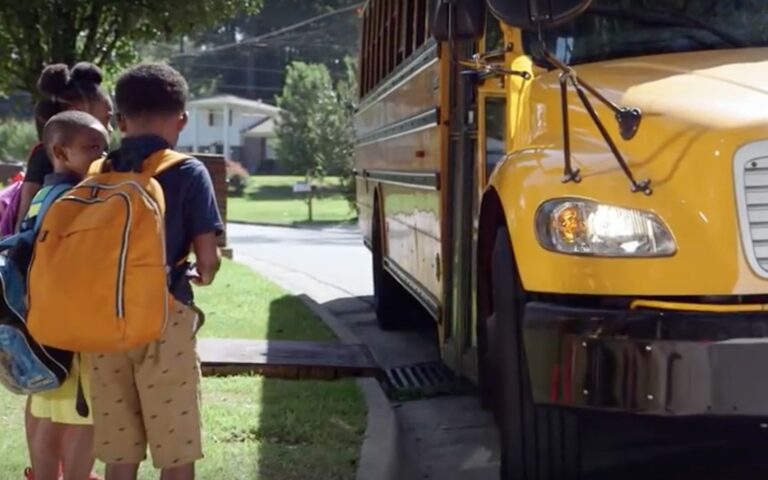In these unprecedented recent events, most families have had their daily schedules and routines turned upside down. And because no one is really sure how long this will last, or exactly what the future looks like, we are all feeling a wide range of emotions as we navigate the uncertainty. Think of how much harder this is for a child.
Without a daily routine, children lose a sense of safety and security. As adults, it is our job to create as much predictability and order as possible so the children in our lives can feel safe while they continue to learn at home.
How Uncertainty Impacts Behavior

Uncertainty and unclear expectations can create stress and anxiety in many of us. With young children, this can manifest in a variety of ways:
- Emotions and behaviors may be erratic and not seem to match the circumstance.
- Children can regress in developmental milestones, ie: talking like a much younger child, wanting to be carried, and potty training can take a step back.
- Siblings who are not used to being together all day can bicker and bid for adult attention.
Why Routines are Important
We were all thrown into this new “for now” normal and have been in survival mode. But one thing we can do to support our children is to create the most predictable and responsive routine possible.
We choose the word routine, because it allows more flexibility than a schedule. If you are juggling a job and multiple children from home, there will definitely be some last minute changes. It’s a good idea to try to keep it as close to what a typical school/workday looks like in regards to major things like bedtime, rest time, and meals.
A well-rested child makes for a happier day for everyone and it gives you some well-deserved downtime in the evenings if they maintain a reasonable bedtime.
Tips to Create Routine
If you are working from home while caring for and homeschooling your children, you will need to be strategic in your planning. Everyone’s situation is unique, so there is no one right plan.
Here are a few things to take into account when planning, as well as some tips to try if they sound right for your family:

- Divide and conquer. If there are two or more adults in the home, maybe you can tag-team or split school tasks where your children need one on one support.
- Take your own schedule into account. If you have a regularly scheduled team call, plan an activity at that time that does not require adult support. This will vary depending on your child’s age and personality but think legos, blocks, drawing, etc. Some days this will also be the perfect opportunity for allotted screen time. Know your child’s (and your) limits 🙂
- Let older siblings help. If there is an older sibling who is interested, they can take a small block of time each day where they help to facilitate the younger child’s play, reading or school work. Give older children some choice in when and how they help out, and be sure to communicate that it is for a specific amount of time. These learning and teaching opportunities can be as simple as reading before rest time or playing with the younger children while you prepare dinner each evening. Taking responsibility and helping out the family can create and strengthen connections between siblings.
- Build in times to move! If you are lucky enough to have a yard or outside space where you are not exposed to others make sure movement is in your schedule as much as possible. If you are mostly indoors, put on some fun music and dance. We all need to move, especially active, growing bodies!
- Create down or quiet time for children. Find creative ways to make sure children have some space from their siblings each day. If they share a room, try rotating one child to another spot. If you don’t have an extra room, perhaps the dining room table with a sheet over it becomes a fort with a sleeping bag, books, and a flashlight. Make this time of day special so children look forward to it.
- Make time for connection. Make sure to build in times to connect with your children throughout the school/workday, particularly if you are working as well. Try a morning and afternoon snack together, or a picnic lunch on the deck. Have a ritual to open up and end the school/workday.
- Create learning spaces. For school-age children, if possible, establish a learning space or spaces that are dedicated to school time. If this is not something you can do, try and pack up or move school and work materials to a different spot, so the family can more easily shift into family time at the end of the workday.
- Create a visual daily routine. This will help to provide predictability for your children and give them a sense of control. They will be able to see what happens next in the day which will give them a sense of security and comfort.
Times of crisis can bring us together as a family and a world and remind us of what is important as we use every moment to build meaningful relationships, connecting with those we love and all of humankind. During this time of uncertainty you may even create some new family rituals and routines that you keep going forward.
Interested in a more structured form of talking, reading and playing with your child? Enjoy daily lessons delivered by real educators.



